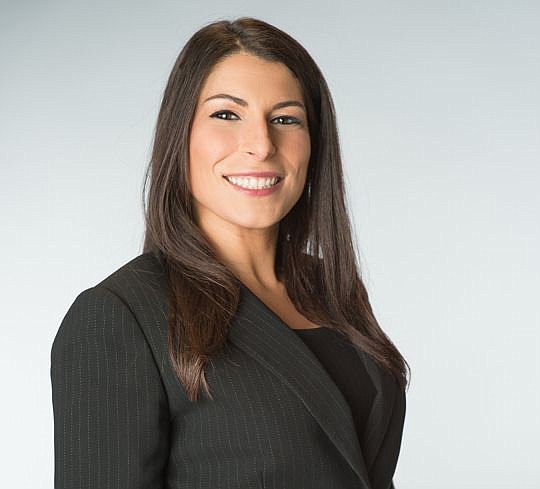
Take a moment to think about the people who have helped you in your career.
Maybe there is someone who advised the hiring partner at your firm, “If you hire Jane and she isn’t the best new associate you’ve ever had, well, I’ll eat my hat!”
If you are fortunate to have that type of support, you have a sponsor.
A sponsor is an influential person invested in your career success who puts his or her reputation and social capital to work for you. A sponsor may be a supervisor, colleague, client or peer.
Sponsors are not the same as mentors.
Professionals are generally familiar with the idea of mentors, who are people who provide career guidance and advice.
For most attorneys, the value of having and being a mentor is a well-understood component of advancing legal competence and building soft skills.
Attorneys often have mentors who guide and support them through the various stages of their careers.
Duval County Judge Michelle Kalil confirmed she has had different mentors throughout her career, including during her transition from private practice to the bench.
She believes “it is of utmost importance to not only seek out a mentor in the beginning of your career, but to also serve as a mentor throughout your career.”
Having a great mentor can be invaluable to career success and serving as a mentor furthers your own development.
Sponsors are no less important to professional success and career advancement than mentors. However, the relationship is less frequently discussed.
The same person may be both a mentor and a sponsor, but sponsors have a fundamentally different role.
A mentor provides guidance whereas a sponsor is a vocal advocate on your behalf. It is often said “a mentor will talk to you, a sponsor will talk about you.”
By virtue of their own reputation, status and influence, sponsors are positioned to promote and support you when you are not in the room.
“A sponsor is someone, I believe, who advocates for you, maybe sometimes ‘behind the scenes.’ A sponsor generally makes sure your hard work and effort is recognized,” said Kalil.
Sponsors are people who have the requisite influence to raise your visibility within an organization or community and may be either internal or external to that group.
A sponsor supports you for a promotion, recommends you for a stretch assignment, vouches for you, defends against your critics or connects you with other influencers.
A sponsor can help you get the recognition necessary to achieve the next level in terms of title or responsibility.
Sponsors aid you in overcoming obstacles to advancement. Duval County Judge Kelly Eckley sums it up as “having a sponsor that believes in you and your potential will open doors that you only dreamed existed.”
Michael Freed, a shareholder at Gunstser, acknowledges the critical role of mentors in professional development, but makes clear sponsors are equally as valuable to building credibility and ultimately your brand.
“When someone puts their reputation behind you, your reputation is enhanced significantly –– much more than the important, but more incremental, growth that comes from doing good work and having success,” he said.
Many influential members of the local community vouched for and supported Freed when he was a newcomer to Jacksonville more than 20 years ago.
Those relationships “accelerated my ability to connect and grow professionally in ways from which I continue to benefit,” he said.
While it is advantageous to identify and seek out influencers with whom you can build professional relationships, sponsorships develop when the sponsor recognizes your potential.
Great work often is the foundation of the sponsor relationship, but it alone is not enough.
Sponsorship is a relationship rooted in trust and an investment in mutual success. Your sponsor must know that you will rise to the challenge and reliably deliver top quality work.
Your sponsor needs to know you will succeed and make him or her look good.
A sponsor can be a powerful asset. Seek out and cultivate sponsors. Consider, however, not only the value you can receive, but also the value you can give.
For instance, in reflecting on the support of his own sponsors, Freed said, “I now seek out opportunities to ‘pay it forward’ by doing the same for others.”
You too can be a sponsor if you identify talented people within your own sphere of influence and invest in their success.